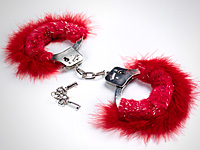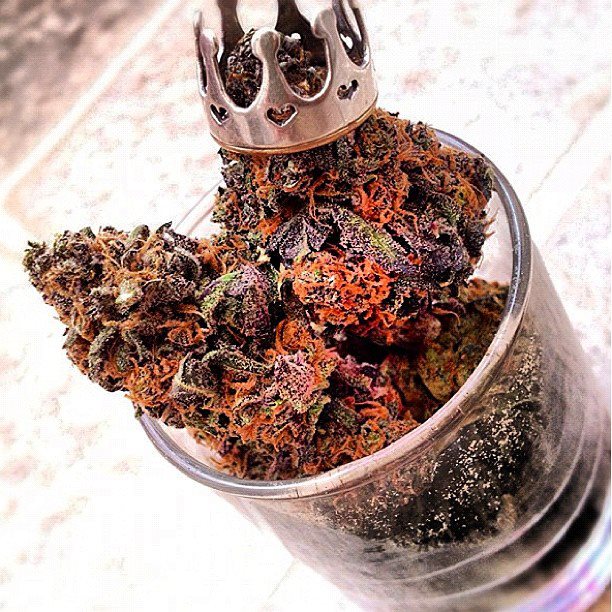
Leftovers can be kept for three to four days in the refrigerator. Be sure to eat them within that time. After that the the risk of food poisoning increases. If you don't think you'll be able to eat leftovers within four days, freeze them immediately.
Food poisoning — also called foodborne illness — is caused by harmful organisms, such as bacteria in contaminated food. Because bacteria typically don't change the taste, smell or look of food, you can't tell whether a food is dangerous to eat. So if you're in doubt about a food's safety, it's best to throw it out.
Fortunately, most cases of food poisoning can be prevented with proper food handling. To practice food safety, quickly refrigerate perishable foods, such as meat, poultry, fish, dairy and eggs — don't let them sit more than two hours at typical room temperature or more than one hour at temperatures above 90 F (32 C).
Uncooked foods, such as cold salads or sandwiches, also should be eaten or refrigerated promptly. Your goal is to minimize the time a food is in the "danger zone" — between 40 and 140 F (4 and 60 C) — when bacteria can quickly multiply.
When you're ready to eat leftovers, reheat them on the stove, in the oven or in the microwave until the internal temperature reaches 165 F (74 C). Because they may not get hot enough, slow cookers and chafing dishes aren't recommended for reheating leftovers.
 Peter Dazeley | Getty Images
Yet this is a country where just 30 years ago public criticism erupted when a magazine published a picture of a couple kissing on its back cover.
The about face in attitudes towards sex in China, which began when the prudish Communist government launched its opening and reform drive in the late 1970s and has been catalyzed by the Internet, is creating a prime business opportunity for the sex toy industry, insiders say.
The market will grow to around 40 billion yuan ($6.4 billion) by 2014 from around 10 billion yuan at the end of last year, predicts Lin Degang, chief executive of an online retailer of sex toys, www.oyeah.com.cn.
"Within five years, sex toys will be a common commodity for everyday use," he told Reuters."
Sex toys will be a key element of a fashionable lifestyle." Sex toys have become so ubiquitous that various kinds of vibrators can even be bought at FamilyMart Co Ltd convenience stores throughout Shanghai. With price tags of $15 to $17, they are sold by the cashier, along with condoms.
Highlighting expectations of a strong upward trajectory in domestic sales, two private equity firms in August jointly invested 300 million yuan into Love Health Science & Technology Co Ltd, the biggest Chinese sex toy manufacturer.
Sex toys have existed in China for centuries. The concubines of Chinese emperors who failed to find sexual satisfaction often turned to them, and there were also sex toys for men, according to Peng Xiaohui, a professor of sexology at Central China Normal University, in the central city of Wuhan.
Their use was forced underground after the Communist Party took over the country in 1949 and adopted policies aimed at repressing people's personal desires, including romance and sex, in favor of ideas of revolution and collectivism.
Forbidden Puppy Love
Even teenagers were officially "forbidden" to have crushes on each other.
"We can say that after 1949, Chinese society was more conservative than in ancient China," said Peng.
Things have changed following social and economic reforms that began in the late 1970s, but many Chinese still hold conservative views towards certain elements of sex, such as homosexuality and pornography. Pornographic websites and publications are banned, while young homosexuals often marry to conform to society.
But over the last decade, the subject has become an increasingly open topic for debate, mainly due to the Internet.
Many online communities, such as those for gays and lesbians and those seeking partner swaps, have sprung up over recent years, said Fang Gang, director of sex and gender institute at Beijing Forestry University.
The country's state-run broadcaster has aired a program featuring a controversial sexologist, who on the show called for the legalization of homosexual marriages, while an annual sex fair in Guangzhou in southeastern China drew 250,000 visitors last month.
Fang said sex is far more than a physical act.
"It is a barometer of the entire society. With a more free society comes a more free attitude towards sex, and vice versa," he added.
Lin said around 70 percent of his clients, mostly in their 20s and early 30s, were male. Most purchase items — the favorite being a double vibrator — for their girlfriends.
At Yamete Love Store, in a residential area of downtown Shanghai, customers can browse items ranging from inflatable dolls to sexy costumes amid low-key lighting as mellow music plays. Most of the items are imported from Japan and Sweden, and carry prices from $100 to $210.
Most shoppers, though, still seem to prefer buying online.
"I feel too embarrassed to buy any sex toys in actual stores," said Candice Zheng, a 25-year-old office worker in Zhejiang province, south of Shanghai. "I just order them from on-line shops."
via After Long Night, Chinese Sex Toys See New Dawn - Asia Business News - CNBC.
Peter Dazeley | Getty Images
Yet this is a country where just 30 years ago public criticism erupted when a magazine published a picture of a couple kissing on its back cover.
The about face in attitudes towards sex in China, which began when the prudish Communist government launched its opening and reform drive in the late 1970s and has been catalyzed by the Internet, is creating a prime business opportunity for the sex toy industry, insiders say.
The market will grow to around 40 billion yuan ($6.4 billion) by 2014 from around 10 billion yuan at the end of last year, predicts Lin Degang, chief executive of an online retailer of sex toys, www.oyeah.com.cn.
"Within five years, sex toys will be a common commodity for everyday use," he told Reuters."
Sex toys will be a key element of a fashionable lifestyle." Sex toys have become so ubiquitous that various kinds of vibrators can even be bought at FamilyMart Co Ltd convenience stores throughout Shanghai. With price tags of $15 to $17, they are sold by the cashier, along with condoms.
Highlighting expectations of a strong upward trajectory in domestic sales, two private equity firms in August jointly invested 300 million yuan into Love Health Science & Technology Co Ltd, the biggest Chinese sex toy manufacturer.
Sex toys have existed in China for centuries. The concubines of Chinese emperors who failed to find sexual satisfaction often turned to them, and there were also sex toys for men, according to Peng Xiaohui, a professor of sexology at Central China Normal University, in the central city of Wuhan.
Their use was forced underground after the Communist Party took over the country in 1949 and adopted policies aimed at repressing people's personal desires, including romance and sex, in favor of ideas of revolution and collectivism.
Forbidden Puppy Love
Even teenagers were officially "forbidden" to have crushes on each other.
"We can say that after 1949, Chinese society was more conservative than in ancient China," said Peng.
Things have changed following social and economic reforms that began in the late 1970s, but many Chinese still hold conservative views towards certain elements of sex, such as homosexuality and pornography. Pornographic websites and publications are banned, while young homosexuals often marry to conform to society.
But over the last decade, the subject has become an increasingly open topic for debate, mainly due to the Internet.
Many online communities, such as those for gays and lesbians and those seeking partner swaps, have sprung up over recent years, said Fang Gang, director of sex and gender institute at Beijing Forestry University.
The country's state-run broadcaster has aired a program featuring a controversial sexologist, who on the show called for the legalization of homosexual marriages, while an annual sex fair in Guangzhou in southeastern China drew 250,000 visitors last month.
Fang said sex is far more than a physical act.
"It is a barometer of the entire society. With a more free society comes a more free attitude towards sex, and vice versa," he added.
Lin said around 70 percent of his clients, mostly in their 20s and early 30s, were male. Most purchase items — the favorite being a double vibrator — for their girlfriends.
At Yamete Love Store, in a residential area of downtown Shanghai, customers can browse items ranging from inflatable dolls to sexy costumes amid low-key lighting as mellow music plays. Most of the items are imported from Japan and Sweden, and carry prices from $100 to $210.
Most shoppers, though, still seem to prefer buying online.
"I feel too embarrassed to buy any sex toys in actual stores," said Candice Zheng, a 25-year-old office worker in Zhejiang province, south of Shanghai. "I just order them from on-line shops."
via After Long Night, Chinese Sex Toys See New Dawn - Asia Business News - CNBC.
 source: https://www.facebook.com/photo.php?fbid=420584361342595&set=a.122484784485889.18933.103384269729274&type=1&theater
source: https://www.facebook.com/photo.php?fbid=420584361342595&set=a.122484784485889.18933.103384269729274&type=1&theater
